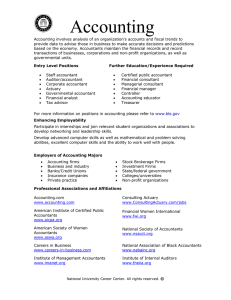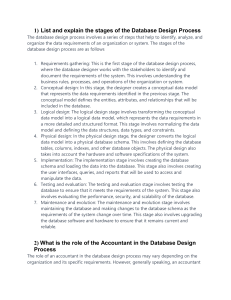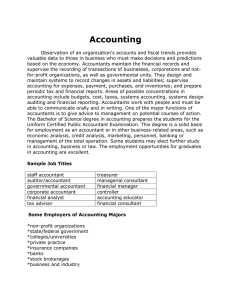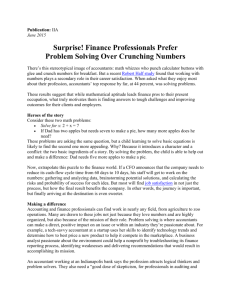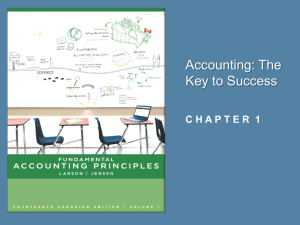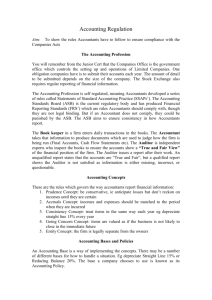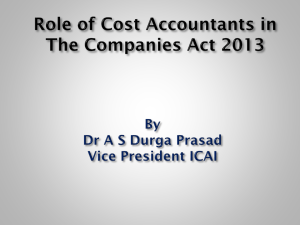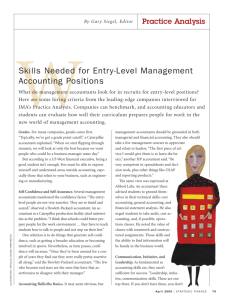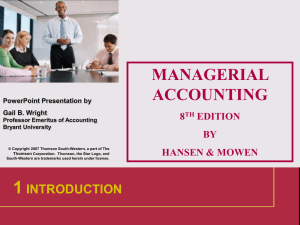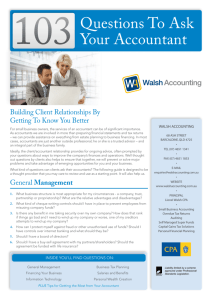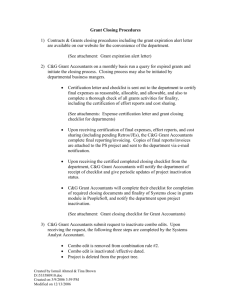WDACRW 2nd Ed Product Briefing
advertisement
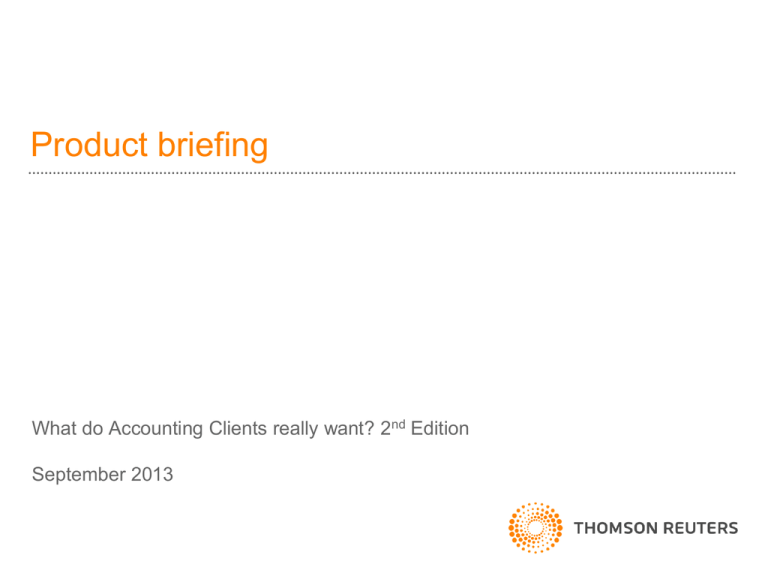
Product briefing What do Accounting Clients really want? 2nd Edition September 2013 What do Accounting Clients really want? Price: $75 incl GST Code: 9780864607379 About the author James Evangelidis is Principal Consultant with Envoy Professional Search – a boutique consultancy specialising in the search and placement of senior accounting and law professionals. He has provided services to many large and small businesses including PricewaterhouseCoopers, Ernst & Young, Grant Thornton, BDO Kendalls, Moore Stephens, IAG, Thomson Reuters, Merrill Lynch, Fujitsu, Macquarie Bank, Westpac and News Limited. With expertise in business development and marketing, James has assisted commercial clients win new business with organisations such as ING, St George and CBA. James’ experience in working with clients in the accounting sector has given him a unique set of insights into the dynamics of the relationship between clients and advisers. What do Accounting Clients really want? The book sits under the Practice Management area. It targets: The target market • Australian accounting practices (across all tiers) servicing small to medium clients • Accounting students or graduates • As with other professions, Accountants are time poor and by default fall into the trap of assuming they know what their existing clients want. They also extend this assumption to new and prospective clients. However they assume without necessarily seeking that their assumptions are correct for their clients • Given the exit of baby-boomer owners of established businesses, the relationships will be succeeded by the next generation and new owners. These new relationships will call for different insights and skills in accountants and advisers wanting to work with SME owners/management. • As Accountants, they are quite focussed on the technical issues of a matter rather than building the “soft skills” of a relationship • Post GFC – professional services businesses have become far more competitive. • “Big 4” firms have now entered the SME sector to win more business. Smaller accounting firms have to reinvent themselves and develop new offerings to retain current business and attract new clients. What are the reader’s problems and issues? How does the book address those problems and issues? The book is a series of 18 interviews with people who buy accounting services, 12 new interviews and 6 follow up interviews from the first edition. These interviewees reveal what they want out of an accountant. There are also 2 sections which address two of the important things clients really want from their accountants and advisors. The interviewees fall into one of two categories: Business owners (Managing Directors, General Managers, CEO) Finance Management (e.g. CFOs, Finance Directors) What do Accounting Clients really want? Why is this book unique There is a plethora of books/resources published on business development and client relationship management . However, such books address their respective topics from the professional’s perspective – not that of the client. Direct insights into the mindset and motivation of a client – very worthwhile if this is not often asked See what makes clients tick – so they do not make the same mistake! A wide range views from different industry segments: What benefit will the readers derive from the book? o Retail o Financial Services o Telecommunications o Manufacturing o Information Technology o Professional Services o Education o Entertainment o Construction o Property o Fast moving consumer goods o Hospitality Read about “a view from the other side” which provides insight into what other accounting practitioners think of the issue Can be used in teaching Accounting students and graduates about the soft skills necessary in building and maintaining client relationships. Juniors/graduates of accounting firms concentrate on the technical knowledge rather than developing the necessary skills in dealing with clients Examples of questions asked by the author • What is the most important quality or attribute you look for in an accountant? • Are price and quality a trade-off? • When looking at engaging a new accountant, how important is the firm’s brand to you? • Tell me about a time when you received terrible service from an accounting firm. How did it make you feel? What could they have done differently? • If you were to hire a new accountant/accounting fi rm, what are the things you would look for? • Do you prefer time-based billing, a fixed price for service or a retainer arrangement? • What can accountants do to improve their service to you? • What role does your accountant play in your business? What role would you like them to play? Some quotes from clients on what they want • They are good listeners as long as they apply what they hear. When they listen I hope they take it on board, but then you’ll see when the fi nal output is delivered it suddenly dawns on me that they really haven’t listened; a case of hearing but not listening. • I prefer time-based billing because you know you’re paying for the time taken to do the given task. I get the sense that a fixed price will be at the upper end of the possible time scale of expected fees. I want to pay for those tasks that I don’t have the expertise or time to do, so I am satisfied that time-based billing is fair and reasonable. • They could provide more free titbits of advice, which we could then act on and add value to our business. The fee we would then pay would then be related to the work involved and the value of the benefi t from the advice. If they saw an opportunity to make us money or save money, I would be all ears and either prioritise it or have them carry it out. • I think the Big Four have a lot of very good people working for them. But I think, as a rule, they need to be more responsive • In my experience if you hire the right person, they’re always talking to you. It doesn’t matter if they are an accountant, lawyer or engineer. Getting back to the earlier attribute of attitude, the person I’ve hired will be thinking about my business and ways they can help me do things better. It shouldn’t be a case of being more proactive – they just are proactive. • I don’t like it when advisers, be they accountants, lawyers or any other professional pretend they know something when in reality they don’t. I would much prefer to have someone who will say, “I don’t know”, stop the conversation there, go away and do their research and come back to me with the right answer. I have personally experienced the problem before where we were dealing with one adviser who gave us a particular answer on a very complex tax issue and a different adviser from the same accounting fi m giving us a response on the same issue that was quite different. It was a disappointing outcome, the result of which was a lot of wasted time.
